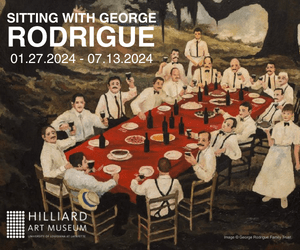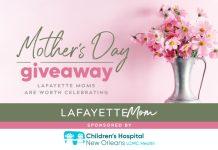There are no words to adequately describe the pain felt when we lose someone we love. We try explaining it by using the word grief. There are even “The 5 Stages of Grief” that guide us through our emotions when we’re grieving. I can recite these stages to you, not only because I learned them in graduate school for social work, but because I’ve lived them.
When reading through textbooks about the stages of grief and studying Elizabeth-Kubler Ross’ beautiful work she’s done on grief, I thought I understood it. I appreciated how Ross spelled it out for me, and I thought the stages of grief were phases we’d go through, like a book, and once we are done with one stage, we’re done with that, and we move on to the next. What a precise, organized process, I thought.
I even thought to myself, “That doesn’t sound so bad.”
Shortly after graduate school, I embarked on my social work career, ready to help others. I couldn’t wait to walk them through the 5 stages of grief, and cross through denial, anger, bargaining and depression all the way to acceptance where they’d graduate from grief. It didn’t take long for me to be thrusted into reality. That’s not how it works.
Coming out of graduate school, I lost my father suddenly to a heart attack. I was scheduled to get married 1 month later, and had to walk down the aisle without him. There was no stage of grief that could explain that level of pain to me.

From there, life got harder.
I was faced with more suffering, disappointment, betrayal and pain. Not to say life didn’t have its beautiful moments, because it did. But, it certainly wasn’t the fairy tale I’d dreamt of. I quickly learned that grief doesn’t come solely from the death of a loved one. I learned that we can grieve the loss of what could have been. We grieve the loss of friendship, independence, or a job. We can even grieve when we discover that someone isn’t who we thought they were.
A few years after my father’s death, and a few years into my social work career, I found myself doing some healing. I hadn’t depended on the stages of grief at all. I spent those years telling myself, “You have to get up. You have to keep going.” After years of white-knuckling through the pain, I felt progress. Through my work as a hospice social worker, I was able to find healing through helping others. Becoming a mother opened my eyes to a new perspective of love and survival.
I was adjusting to my “new normal.”
Eventually, in the chaos of life, I learned I was pregnant with my second child. The feeling was indescribable. Fear mixed with joy mixed with thoughts of “Can I do this?” My body instantly remembered what it needed to do. The extra weight came quickly as did the weird cravings. The planning began and I found myself shifting into my “new, new normal,” a mother of two. I bought the bigger SUV. I opened a health savings account. I met with my OB. I stopped drinking wine. I was ready. Or so I thought.
12 weeks into my pregnancy, the unthinkable happened. It all ended. Women who have experienced this know what I’m talking about. Blood isn’t something I’m supposed to see right now, I thought. I screamed. I knew.
The rest was a blur. There was no longer a heartbeat. My OB/GYN used words like “chromosomal abnormality” and “demise.” Having worked with women experiencing this many, many times, I’d use these words before. But they carried a whole new meaning now. This time, these words were describing my baby. MY OB/GYN told my husband and I that he believed that if we prayed, God could put the baby’s gender on our hearts. We didn’t have to pray for that. We already knew. The baby we lost was a boy. We named him Joseph.
The days to follow were physically and emotionally painful.
I didn’t know what day it was and I couldn’t fathom why this had happened. I blamed myself. And those pesky stages of grief? They hit me in the face at once. I’d been in storms before, but none like this. All my hopes and dreams of the future were crushed and I didn’t know where to go next. I went back to work and was expected to act like nothing happened, even though my body wasn’t the same for months. The days were long, and they were hard. It didn’t take long for those same voices to return telling me “Get up. You have to keep going.” So that’s what I did.
I spent the next 2 years helping patients and families through grief and loss as I was processing my own grief. I put all my energy into my then-2-year-old, because while I was falling apart, I knew she needed me. I fought through the storm without knowing that’s what I was doing. That’s what it means to “white-knuckle” it.
I was on a roller coaster, just grabbing on to the handrails as tight as I could just waiting for it to be over.
When I found out I was pregnant again, those same feelings of joy and thoughts of “Can I do this?” returned, but the fear grabbed me by the chest. I was so crippled with fear, I didn’t want to tell anyone about my pregnancy, nor did I want to celebrate it. I lived in a state of numbness, afraid to let myself feel the joy that a new mother feels. After all, I’d felt that joy once before only to be let down. I wasn’t going to allow that to happen again.
The weeks went by, and I eventually allowed myself to get the app on my phone that compares my baby’s size to vegetables or pastries. With every week that passed, I felt like I was giving myself permission to be thankful and celebrate. When those fearful thoughts entered my mind, I’d still hear that voice “Get up. You have to keep going.” And, yet again, that’s what I did.
Looking back on my experiences with grief, I realize now that while I spent years in the storm, I was chasing a rainbow I didn’t even know was there.
After all, during the storm, the rainbow is impossible to see. Even throughout the pain, grief and sadness, my faith and my heart told me there was something beautiful waiting for me.
I know nothing is promised. Everything can change today. But, today I choose joy. I choose to bask in the glory of this rainbow and embrace God’s promises of redemption because at this moment, that’s where I am.


















